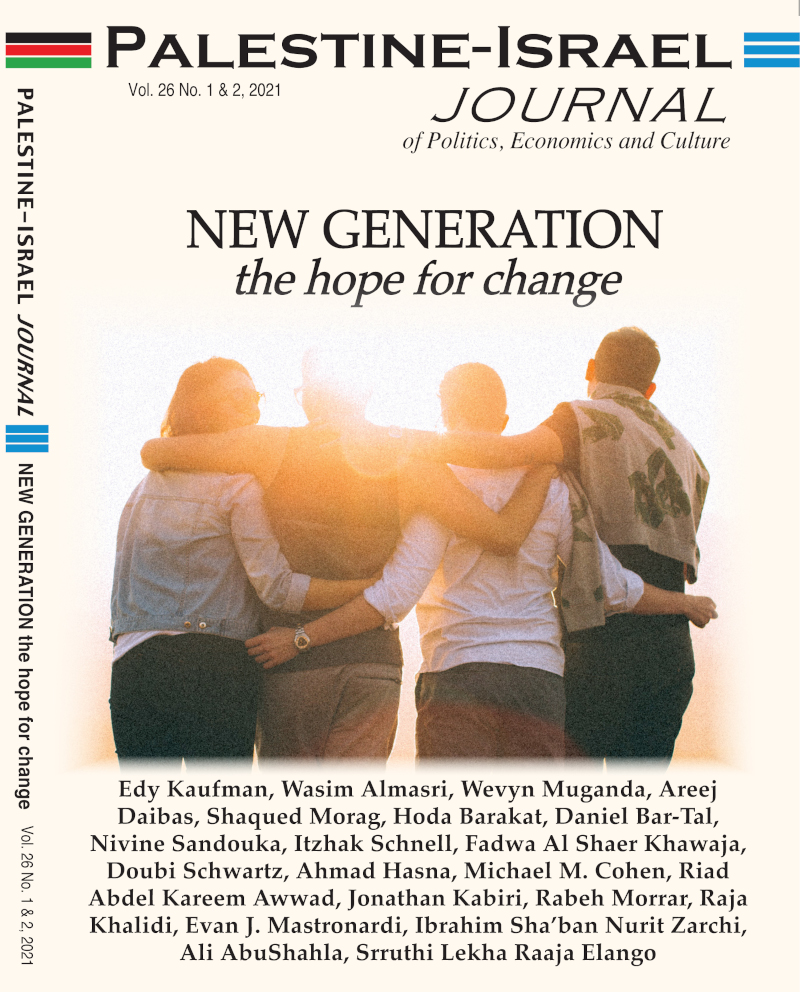While Israeli and Palestinian veterans were able to lay the foundation for mutual recognition between the State of Israel and the Palestinian Liberation Organization (PLO) in the 1993 Oslo Accords, they haven’t been able to complete the job by ending the occupation and achieving peace based upon mutual recognition between two states: Israel and Palestine living side by side along the June 4, 1967 borders. Twenty-eight years later, the occupation continues, the settlement enterprise is expanding, the 1967 borders known as the Green Line are fading, and the dual legal system and the deprivation of Palestinians of their rights has created an increasingly apartheid-like reality in the occupied West Bank.
In the recent unprecedented fourth round of, and once again inconclusive, Israeli elections, the occupation and Israeli-Palestinian relations were simply not on the agenda. The focus was on “Bibi yes or no” and how to deal with the COVID-19 pandemic and its economic repercussions. While Palestinians are looking forward to the prospect of their first elections since 2005-06, they are mainly concerned with ending the division between Fateh and Hamas, restoring the legitimacy of their national institutions, arranging their internal affairs by electing a new leadership and adopting a comprehensive national plan to lead their struggle for freedom and independence against Israeli maneuvers to liquidate the Palestinian cause and undermine any possibility of establishing a Palestinian state.
Clearly, hopes for a better future lie in the hands of the younger Israeli and Palestinian generations, but unfortunately, on the Israeli side, there is a growing trend toward the right among the younger generation, which was reflected in how they voted in the recent election. At the same time, many young Israelis, suffering from the Likud government’s mismanaged and biased policies in response to COVID-19, took the lead in the mass “Balfour protests” against corruption, calling on “Bibi” Netanyahu to “Go!” Still, very few of them expressed concern about the occupation or the Palestinians’ human rights and appear to have accepted the de facto situation in the OPT and to have lost interest in changing it towards resolving the conflict.
On the Palestinian side, the young are frustrated and disappointed with the failure of their current leadership in ending the occupation and delivering what they promised after their engagement with the Oslo process, and are looking forward to their first opportunity to participate in elections for their leadership and, hopefully, to developing new strategies for ending the occupation and living a productive, dignified life. Some have started to lose faith in the possibility of change — especially in the Gaza Strip — and their maximal dream has become to find a way to get out of Gaza and emigrate. Some have already tried that and lost their lives, drowning in the Mediterranean while trying to get to Europe.
This issue of the Palestine-Israel Journal is devoted to analyzing the situation of the younger generation in both societies and to providing a platform for the younger generation, from Israel, Palestine and around the world to express themselves and speak loudly about their problems, fears, aspirations, and future prospects.
United Nations Security Council Resolution 2250, passed in December 2015, notes that “today’s generation of youth is the largest the world has ever known, and that young people often form the majority of the population of countries affected by armed conflict.” It therefore recognizes that “youth should actively be engaged in shaping lasting peace and contributing to justice and reconciliation, and that a large youth population presents a unique demographic dividend that can contribute to lasting peace and economic
prosperity if inclusive policies are in place.”
While they can and should learn from both the achievements and the failures of the older generation, youth are the key to a better future. In their hands lies the hope for the development of new strategies to resolve the Israeli-Palestinian conflict, for the sake of both peoples. And the challenge is how to empower youth in a way that enables them to engage with political issues, assume responsibility for shaping their own future, and realizing that peace and security for all is the key for prosperity and better life for all.

